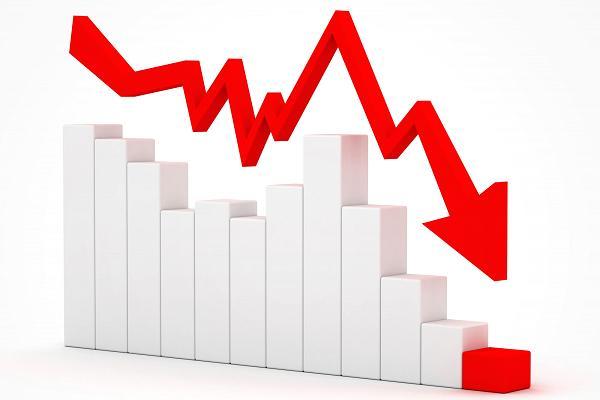Armenia’s investment climate is weakening, as its economy

By Abdul Kerimkhanov
Political turmoil of 2008 continues to have adverse effect on the Armenian economy. Statistical data shows a serious decline in the country’s investment climate as the post-revolutionary Armenian government’s attempts to return foreign investment to the country have failed.
Opponents of the so-called velvet revolution believe that such dramatic changes in the Armenia’s political structure will lead to economic stagnation, capital outflows and a decrease in a foreign direct investment (FDI).
According to the data provided by the State Statistical Committee of Armenia, the net FDI flows in the Armenian economy amounted to $7.6 million in the first quarter of 2019 compared to $83.6 million in the same period of 2018. These figures clearly show that Armenia has become much less attractive to foreign investors following the revolution.
The dynamics of foreign investments from abroad particularly suffered in the second and third quarters of 2018 as a result of the actual suspension of the notorious Amulsar mine program. Armenian Prime Minister Nikol Pashinyan had given a go ahead to the controversial project that was later overshadowed by environmental considerations. Thus, the project was halted due to protests by environmentalists. Such unprofessional handling of the project that had attracted $350 million worth investment from Lydian International was a blow to the Armenian economy and reduced the country's investment attractiveness even more.
Lydian Armenia, a subsidiary of Lydian International, has been exploring the Amulsar field since 2007 and received a production permit back in 2015, but due to additional environmental requirements, it was not allowed to start the production. The Amulsar gold mine itself, located in the southeast of Armenia 13 km from town of Jermuk, is the second largest gold mine in Armenia, containing about 31 million tons of ore and 40 tons of pure gold.
Today, the issue of exploiting Amulsar came to its final stage after the head of the Investigative Committee of Armenia Hayk Grigoryan presented the final conclusion of the international expert group of the company “Earth link & Advanced Resources Development” (ELARD) as part of the criminal case initiated on July 20, 2018. He mentioned there are no environmental threats to the mine exploitation, and the possible risks can be controlled by taking measures, however, the damage to the Armenian economy has already been done.
In general, Armenian PM himself knows that investors were in no hurry to invest in the country's economy. In 2008, following his working visit to the NATO summit in Brussels, Pashinyan said in an interview to Armenian reporters that, on the one hand, the Western partners “welcome the victory of democracy in Armenia, and on the other hand, they are in no hurry to increase financial support to the country”.
In addition, the U.S. is cutting financial assistance to the occupied Nagorno-Karabakh region. These points prove once again that the new Armenian government has plenty of problems with getting investments.
In addition, the U.S. is ready to help Armenia only if Yerevan is fully included in the project of the so-called “Bolton Plan” implementation, which is aimed at geopolitically restructuring the South Caucasus region. Under this plan, Armenia will receive Western investment and access to Azerbaijani and Turkish transport and energy communications in exchange of territorial concessions in the Nagorno-Karabakh region of Azerbaijan, which is currently under Armenian occupation.
Pashinyan, apparently, has not yet made a final decision on this issue, and a lot will depend on the results of the so-called “presidential election”, which will be held in 2020. If Pashinyan will be able to eliminate Karabakh clan representatives in occupied Nagorno-Karabakh as he did in Armenia and contribute to the victory of the candidate advantageous to him, then the possibility of implementing the “Bolton plan” will increase significantly.
Baku will welcome the implementation of this plan. The Azerbaijani side has repeatedly stated at the highest level that after the return of occupied Nagorno-Karabakh and seven adjusting regions, it will be possible to establish diplomatic relations between Baku and Yerevan. Therefore, the Bolton plan is one of the few projects that suit both sides of the conflict.
---
Abdul Kerimkhanov is AzerNews’ staff journalist, follow him on Twitter: @AbdulKerim94
Follow us on Twitter @AzerNewsAz
Here we are to serve you with news right now. It does not cost much, but worth your attention.
Choose to support open, independent, quality journalism and subscribe on a monthly basis.
By subscribing to our online newspaper, you can have full digital access to all news, analysis, and much more.
You can also follow AzerNEWS on Twitter @AzerNewsAz or Facebook @AzerNewsNewspaper
Thank you!
